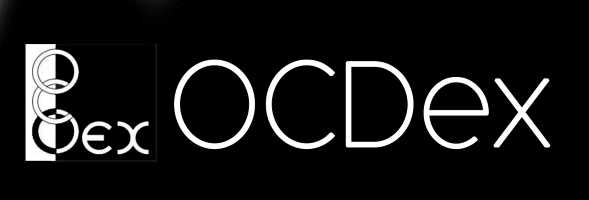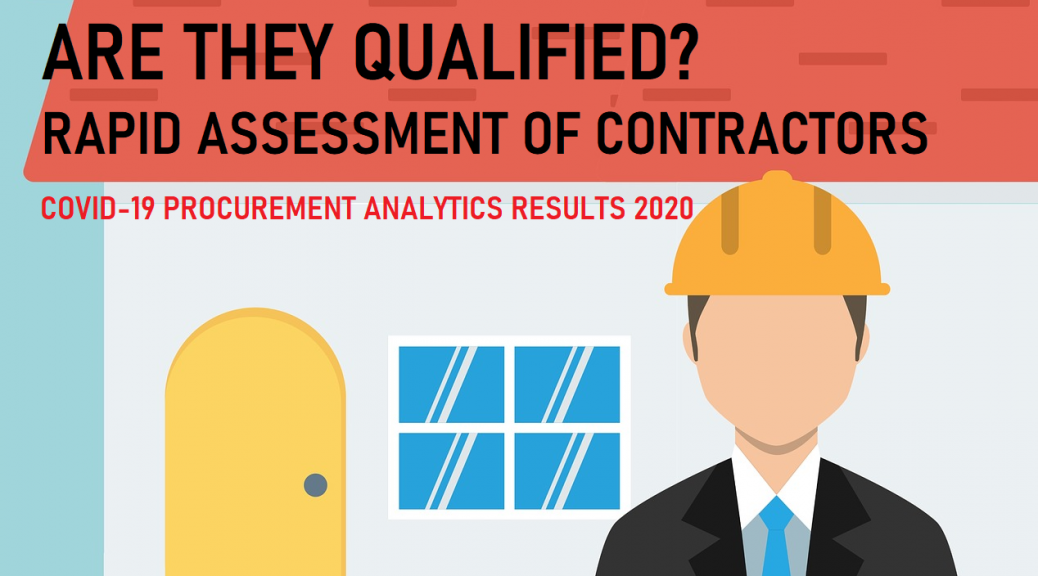(This article and the manuscript were submitted by the research team and may be updated in the future)
As of July 22, 2020, a total of 72,269 total COVID-19 cases has been reported, of which 46,803 are still classified as active cases [1]. With this continual rise of COVID-19 cases, it is estimated that this would cost about PHP2.2 trillion economic losses and is equivalent to at least a 2% contraction in the nominal gross domestic product (GDP) of the country [2]. As a consequence of this economic loss, about 26% of businesses operating in the country have already closed [3] resulting to about 100,000 Filipinos losing their jobs in the 1st half of 2020 [4] Indeed, there is an immediate need to control the spread of COVID-19 in the country to further mitigate the impact of the said disease to the Filipino people.
Fastracking the Public Procurement Process
The COVID-19 crisis in the country is a race against time. As seen from the success stories of our neighboring ASEAN countries, fast, efficient, and integral procurement played a crucial role in securing a “COVID-free” nationwide status. In response to this sense of urgency brought about the by the COVID-19 pandemic, the Government Procurement Policy Board (GPPB) recently issued a series of resolutions to shift current publicly held procurement related to COVID-19 into negotiated procurement (emergency cases) and relax existing guidelines on the submission of vital bid documents [5]-[8]. For instance, expired business or mayor permits and unnotarized bid documents submitted by eligible bidders could already be accepted under these new GPPB issuances.
Challenge on Procurement Integrity and Transparency
While it is necessary to fastrack public procurement in response to the COVID-19 pandemic, it is equally important to ensure integral and transparent implemented procurement processes to protect the interest of the Filipino people. Considered as one of the most vulnerable to corruption especially in this time of an emerging health crisis, relaxation of the imposed regulations is seen to compromise the overall integrity of the present public bidding processes. The acceptance of unnotarized bid documents, for instance, could promulgate misrepresentation on the capacity of an eligible bidder to faithfully undertake any contractual obligations if such barriers are removed.
REACT Risk Indexing System
Through a research grant given by Layertech Software Labs, Inc. and Hivos – People Unlimited, a group of faculty researchers from Bicol University College of Engineering looked closely into this present dilemma. Considering that shortening the time needed in awarding government contracts is of utmost priority, a rapid evaluator and assessor of contractor traits (REACT) risk indexing system was proposed and investigated as an intervening and supplemental tool to aid in upholding the integrity of the presently changed public procurement process on construction and infrastructure tenders related to the COVID-19 pandemic.
Using historical data periodically published by GPPB, assessment of an eligibility of a contractor based on its previous performance was further simplified by these researchers. Through REACT, three general classification of contractors were reported namely, “low risk”, “moderate risk”, and “high risk”. Contractors that were classified as “low risk” in the
proposed risk indexing system were found to be the most eligible as these contractors were reported to have at most an average negative slippage of 7.5%. In accordance to the findings reported by these researchers, it was further suggested that necessary precautions and scrutiny be exercised to those contractors that would be classified as “moderate risk” and “high risk” contractors since these contractors were found to have an average negative slippage of at least 24.9% which is well beyond the acceptable negative slippage of 15%.
Indeed, as presented in the case study of the proposed REACT risk indexing system to the publicly available historical data of contractors in Region V, the applicability of the proposed system to preserve integrity of the presently relaxed public procurement process has been validated.
With the validation of the efficacy of the proof of concept as reported by the researchers, the proposed REACT risk indexing system is seen to be a plausible data-driven solution in light of the challenges in the public procurement process amidst the COVID-19 pandemic.
Find the presentation slides below:
 Loading…
Loading…
Watch the full recording of the presentation below:
References:
[1] https://www.doh.gov.ph/covid19tracker
[2] https://business.inquirer.net/298536/p2-2-trillion-in-losses-cost-of-covid-19-impact-on-ph-economy
[3] https://mb.com.ph/2020/07/16/closure-of-26-of-ph-businesses-alarms-dti/#:~:text=Of%20the%202%2C135%20companies%20surveyed,status%20of%20business%20around%20the
[4] https://newsinfo.inquirer.net/1297196/dole-close-to-100000-lost-jobs-in-jan-june
[5] https://www.gppb.gov.ph/issuances/Resolutions/GPPB%20Resolution%20No.%2003-2020.pdf
[6] https://www.gppb.gov.ph/issuances/Resolutions/GPPB%20Resolution%20No.%2005-2020.pdf
[7] https://www.gppb.gov.ph/issuances/Resolutions/GPPB%20Resolution%20No.%2006-2020.pdf
[8] https://www.gppb.gov.ph/issuances/Resolutions/GPPB%20Resolution%20No.%2009-2020%20with%20SGD.pdf

